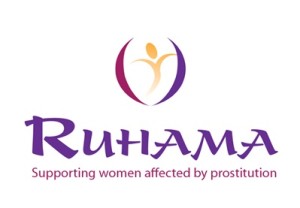
By Sarah Mac Donald - 22 January, 2019
 Irish NGO Ruhama, which supports women affected by prostitution and sex-trafficking, has welcomed the country’s first conviction for paying for sex under the 2017 Criminal Law (Sexual Offences) Act.
Irish NGO Ruhama, which supports women affected by prostitution and sex-trafficking, has welcomed the country’s first conviction for paying for sex under the 2017 Criminal Law (Sexual Offences) Act.
On Monday, a man who was discovered paying women for sex during a raid at a brothel in west Dublin was convicted in the District Court and fined €200.
Responding to the judge’s ruling, Ruhama CEO, Sarah Benson, said that “This case sends a clear message to Irish society that it is not acceptable to pay for access to another person’s body for sexual gratification.”
She added that sex buyers have been operating with impunity in Ireland for far too long.
It is estimated that there are up to 1,000 people in prostitution in Ireland at any time, mostly behind closed doors.
“We are hopeful that more convictions will be achieved under this legislation in future. Evidence has shown that tackling ‘demand’ is a key mechanism for preventing the sexual exploitation of the most vulnerable in our society.”
She warned that while the sex trade continues to thrive because of buyers’ demand, the criminal gangs running it are profiting.
Legislation criminalising the purchase of sex came into effect in March 2017 following years of campaigning by civil society organisations who sought to align Ireland’s laws with the so-called Nordic or ‘Equality’ Model of prostitution legislation.
The act criminalises sex buyers, while decriminalising individuals who sell sex. A primary objective is to tackle the demand that leads to sexual exploitation of, predominantly, women and girls.
According to Sarah Benson, “An essential component of the law introduced in 2017 was the decriminalisation of individuals selling sex, in recognition that those in prostitution are often vulnerable and marginalised. They are also at high risk of suffering as victims of crimes including trafficking, sexual assaults and robbery. They should never be considered criminals but rather offered support and assistance, including from the Gardaí should they require it.”
Ruhama offers free support and assistance to women who are actively involved in prostitution, women who are seeking to exit prostitution, women who are victims of sex trafficking and women who have a past experience of prostitution/sex trafficking.

Sarah Benson, CEO, Ruhama
Referring to the findings of Ruhama’s 2018 “Andreea” campaign, Ms Benson said the findings highlighted the need to criminalise sex buyers.
The campaign highlighted the attitudes of sex buyers towards a young fictitious woman who was a victim of sex-trafficking; 68 per cent of the men requested “sexual services” even after hearing her story.
“We know that buyers don’t care about the welfare of the person they are seeking so-called ‘sexual services’ from, even when they are victims of trafficking. Paying for sex is not an expression of sexuality: it is primarily the assertion of male dominance over women.
“Women we work with have reported countless incidences of physical and sexual violence experienced at the hands of sex buyers. We are hopeful that this conviction will result in increased public awareness about the law, as well as the role that demand plays in fuelling the harm inherent to the sex trade.”
According to Sarah Benson, Monday’s case will “have an important chilling effect on those who may be considering exploiting others simply for their own sexual satisfaction”.
She called for continuity and encouraged the Department of Justice and Equality to ensure sufficient resources are assigned for specialist Garda units to target sex buyers and the criminal organisers who feed their demand.
The Criminal Law (Sexual Offences) Act was passed in March 2017: https://www.ruhama.ie/assets/Press-Releases/Press-Release-Ruhama-Sexual-Offences-Act-2015
What Irish sex-buyers are really thinking https://www.youtube.com/watch?v=9PmAxaWfXv4